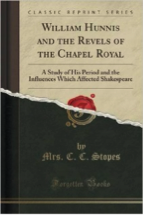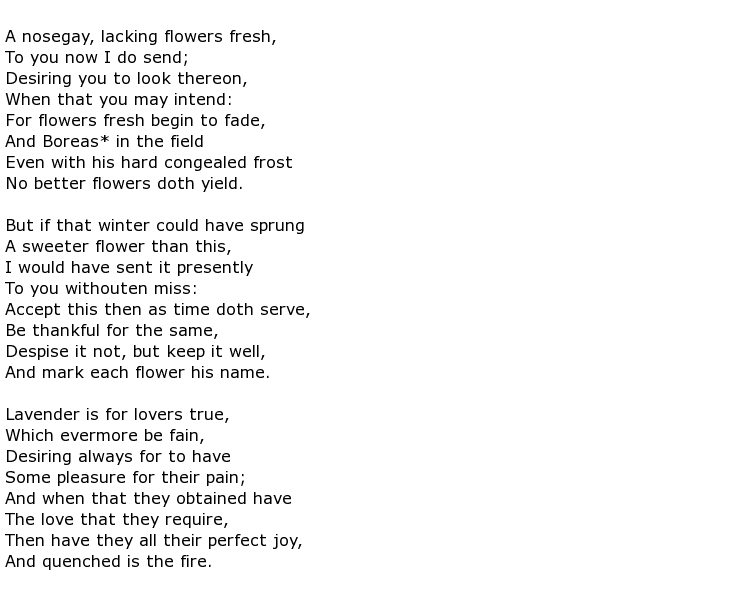 William Hunnis was a 16th century English poet, composer of religious music and a playwright. His strong Protestant faith caused him occasional alarms at a time when religious tensions were everywhere in Europe. His skill as a musician and composer earned him a place at the Chapel Royal during the early1550s.
William Hunnis was a 16th century English poet, composer of religious music and a playwright. His strong Protestant faith caused him occasional alarms at a time when religious tensions were everywhere in Europe. His skill as a musician and composer earned him a place at the Chapel Royal during the early1550s.
Little is known of his origins but it is believed that he was born around the year 1530. Perhaps he was born of doubtful parentage because it is known that he grew up in the service of Sir William Herbert, a future Earl of Pembroke. He served as a page and had the opportunity to learn about music and poetry from the other household staff and his employers. Later on Hunnis would become skilled in the art of writing sonnets and it is believed that he had early training for this under Sir William.
He enjoyed his youthful years but, in his late teens/early twenties, he moved on to the composition of some quite serious verse of a religious nature and his first published work in this field was Certayne Psalmes chosen out of the Psalter of David. He was soon offered a place at the royal court of King Edward VI and, possibly around the year 1553, he secured a position as a Gentleman of the Chapel Royal. When Queen Mary I succeeded to the throne, two years later, she retained his services but this position came under threat when he was suspected of being one of the Protestant conspirators plotting to dethrone her. Another attempt was made, known as the Dudley Conspiracy, and this led to the execution of many of the plotters. Hunnis was found guilty of lesser charges, being the alchemist in the group, and escaped with a stay at Her Majesty’s pleasure in the Tower of London.
Following the death of Queen Mary, Hunnis was free to marry but his wife died shortly after. Hunnis married again and took up the profession of grocer and was appointed supervisor of the Queen”s Gardens at Greenwich. He was very much in favour with Queen Elizabeth and she recognised his skills as a musician and composer. This led to a prestigious appointment in 1566 when he was made Master of the Children of the Chapel Royal. It is likely that he trained his young charges to perform but, unfortunately, there is no documentary evidence of this as any plays acted purely by children were never printed.
Despite his apparent success, and the granting of his own coat of arms in 1568, Hunnis struggled financially. He must have been in a melancholy mood when he wrote Seven Sobs of a Sorrowfull Soule for Sinne. Critics have suggested that he took liberties with this composition, offering

Other famous translators of the ancient psalms included Sir Thomas Wyatt and Sir Philip Sydney and it was thought that Hunnis was never at the same level as those two.
Not all of his written work was of a serious, religious nature though. He composed romantic poetry such as A Nosegay Always Sweet and the opening verses of this piece are reproduced here:

As a respected poet and musician who enjoyed the favour of three Tudor monarchs it seems odd that Hunnis remained a poor man. He was a landowner as well, and yet this did not give him financial comfort. Some of his plays were performed during the Revels at court, one of which was called Jacob and Esau, although some doubts have been expressed about its authorship.
William Hunnis died on the 6th June 1597 which would have given him an approximate age of 67.

